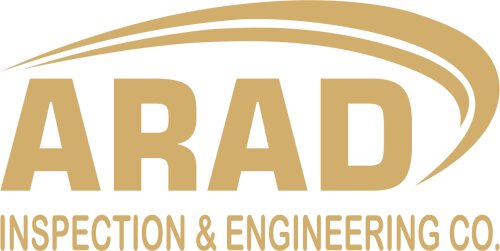Best Energy, Environment & ESG Lawyers in Iran
Share your needs with us, get contacted by law firms.
Free. Takes 2 min.
Or refine your search by selecting a city:
List of the best lawyers in Iran
About Energy, Environment & ESG Law in Iran
Energy, Environment, and ESG (Environmental, Social, and Governance) law is a critical field in Iran, given the country’s significant energy resources and growing environmental awareness. Iran is a major oil and gas producer, and its legal landscape includes a range of laws and regulations governing energy production, environmental protection, and sustainability practices. ESG factors are also gaining importance, particularly for companies looking to align with global standards or attract foreign investment. Legal frameworks in this field help to ensure that energy projects comply with environmental regulations and that organizations operate in a responsible and sustainable manner.
Why You May Need a Lawyer
There are many situations where it may be essential to seek legal assistance in the area of Energy, Environment, and ESG in Iran. These include entering into contracts related to exploration, production, or distribution of energy resources, obtaining environmental permits, complying with environmental standards, managing disputes over land or water use, and addressing issues related to pollution or environmental harm. A lawyer can also be crucial for navigating government regulations, addressing labor or community relations (the social aspect of ESG), and ensuring that your organization meets both local and international compliance standards. In addition, as ESG considerations gain traction, legal advice is valuable for companies aiming to improve their sustainability reporting and corporate governance practices.
Local Laws Overview
Iran’s legal system regarding energy and environment is influenced by its civil law tradition and is governed by several key laws and governmental authorities. The Ministry of Energy oversees energy policy and regulation, while the Department of Environment is responsible for environmental protection and enforcement of standards.
Major laws include the Environmental Protection and Enhancement Act, which sets out obligations for companies and individuals to prevent pollution and protect natural resources. There are strict regulations on emissions, waste management, and water usage for industrial and energy projects. The Oil Law, and other associated regulations, govern oil and gas exploration, production, and export. Renewable energy also has a growing legal framework to promote investment in solar, wind, and hydroelectric power.
ESG law is an emerging area in Iran, influenced by increasing international and local demand for transparency and responsible corporate behavior. While ESG is not always formally legislated, principles are incorporated into investment approvals, stock exchange requirements, and certain government tenders.
Frequently Asked Questions
What permits are needed to start an energy project in Iran?
Most energy projects require environmental permits from the Department of Environment as well as operational licenses from the Ministry of Energy. Specific permits depend on the type of project and its potential environmental impact.
Are there legal requirements for conducting environmental impact assessments?
Yes, Iranian law requires environmental impact assessments (EIAs) for industrial, infrastructure, and energy projects. The Department of Environment must review and approve the EIA before construction or operation begins.
What environmental standards must energy companies follow?
Companies must comply with national standards on air and water pollution, waste management, hazardous materials, and resource conservation. Failure to comply can result in penalties or suspension of operations.
How are renewable energy projects regulated?
Renewable energy projects must register with the Ministry of Energy and adhere to both energy and environmental regulations. Incentives may be available, but compliance with technical and environmental standards is mandatory.
Can foreign investors participate in Iran’s energy sector?
Yes, under Iran’s Foreign Investment Promotion and Protection Act, foreign investors can invest in energy projects, subject to government approval and compliance with relevant laws.
What are the penalties for environmental violations?
Penalties range from fines to revocation of licenses or closure of facilities. In severe cases, criminal charges may be brought against culpable individuals or businesses.
How is water usage regulated for energy and industrial projects?
Water usage requires permits from relevant authorities. Companies must demonstrate sustainable use and may need to implement measures for pollution control and water recycling.
Are there specific ESG reporting requirements in Iran?
Formal ESG reporting is not widespread but is increasingly recommended, especially for companies seeking foreign investment or listing on the stock exchange. Companies may need to report on environmental and social practices in line with international expectations.
What role does the Department of Environment play?
The Department of Environment enforces environmental laws, issues permits, conducts inspections, and handles complaints regarding environmental harm. It is the primary governmental authority for environmental compliance.
What legal recourse is available for communities affected by pollution?
Affected communities can file complaints with the Department of Environment or pursue legal action through the judiciary for compensation or remediation measures.
Additional Resources
For further information or assistance, the following resources may be useful:
- Ministry of Energy: Responsible for energy policy, licensing, and infrastructure projects. - Department of Environment: Main authority for environmental legislation, impact assessments, and enforcement. - Iran Chamber of Commerce, Industries, Mines and Agriculture: Provides information on business operations, including ESG considerations. - Environmental NGOs and advocacy groups: Offer support and guidance on environmental compliance and impact. - Consulting firms specializing in environmental and sustainability law.
Next Steps
If you require legal advice or assistance in Energy, Environment, or ESG matters in Iran, consider the following steps:
- Clearly define your legal issue or the project you need help with. - Collect relevant documents, contracts, and information about the project or situation. - Contact a lawyer or law firm experienced in energy, environment, or ESG law. - Consult with the relevant governmental authority, such as the Department of Environment or the Ministry of Energy. - Review available resources and guides from official agencies and business associations. - Stay informed about changes to regulations, especially as ESG standards continue to evolve in Iran.
Seeking professional legal advice ensures you meet all regulatory requirements, minimize risk, and implement best practices for sustainability and compliance.
Lawzana helps you find the best lawyers and law firms in Iran through a curated and pre-screened list of qualified legal professionals. Our platform offers rankings and detailed profiles of attorneys and law firms, allowing you to compare based on practice areas, including Energy, Environment & ESG, experience, and client feedback.
Each profile includes a description of the firm's areas of practice, client reviews, team members and partners, year of establishment, spoken languages, office locations, contact information, social media presence, and any published articles or resources. Most firms on our platform speak English and are experienced in both local and international legal matters.
Get a quote from top-rated law firms in Iran — quickly, securely, and without unnecessary hassle.
Disclaimer:
The information provided on this page is for general informational purposes only and does not constitute legal advice. While we strive to ensure the accuracy and relevance of the content, legal information may change over time, and interpretations of the law can vary. You should always consult with a qualified legal professional for advice specific to your situation.
We disclaim all liability for actions taken or not taken based on the content of this page. If you believe any information is incorrect or outdated, please contact us, and we will review and update it where appropriate.
Browse energy, environment & esg law firms by service in Iran
Iran Attorneys in related practice areas.
Browse energy, environment & esg law firms by city in Iran
Refine your search by selecting a city.
















